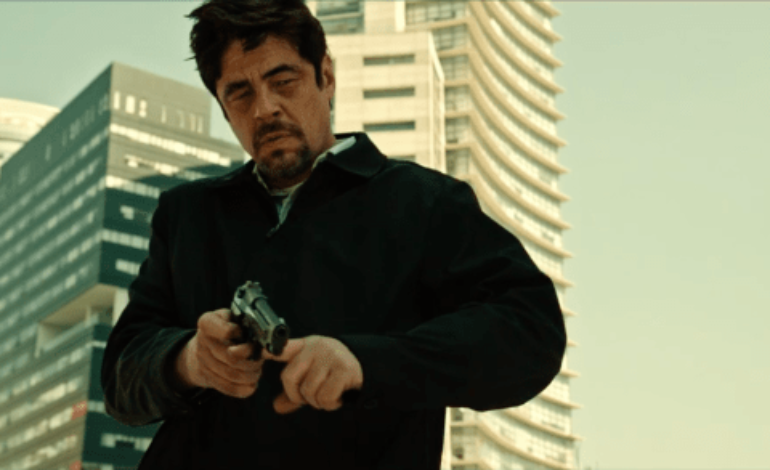

This is the opening weekend of what some hail as the “feel bad move of the year:” Sicario: Day of the Soldado. The sequel to 2015’s Sicario is again penned by actor-turned-screenwriter-turned-director Taylor Sheridan (who also wrote neo-westerns Hell or High Water and Wind River). Soldado sees co-stars Benicio Del Toro and Josh Brolin return to their critically-acclaimed roles as a complicated, cold-blooded assassin (Alejandro, played by Del Toro), and a power-abusing, psychopathic border security agent (Matt Graver, played by Brolin).
Sicario burst into wide-release in October of 2015, forged with kinetic energy by a wide array of immense talent, including director Denis Villeneuve, legendary cinematographer Roger Deakins, and late composer Johann Johannsson. Many believed that the main challenge involved in making a sequel would be living up to the expectations of the first installment, but the aura surrounding the original film did not intimidate the new staff. That includes newly hired director Stefano Sollima, who spoke to Screen Rant about his willingness to take on the new film. “I love the first Sicario. So, I read the [new] script and I was crazy for it. Because it’s pretty close to everything I did,” Sollima said. “So, I thought that was a good transition to different work. Meaning to start working on a project here in Hollywood without losing my specificity. That is the, I think it’s one of the trickiest parts during the transition.”
The biggest controversy surrounding the release became the current U.S.-Mexico border crisis, caused by the publicity surrounding children being taken from their parents at the border crossing and countless deportations continuing to occur. As much of the world rages at the thought of children being kept behind metal fences, anger was expected to follow the film. After all, it portrays a bleak, dreary world, filled with political machinations and violence from both sides of the border. After MSNBC aired the trailer of the film during a report on the border chaos, Sony stayed the course with their marketing and distribution strategy. Thus far, Soldado has earned a mostly positive wave of responses.
The film’s release and the immigration issues may be coincidental, but the violence and dark vision of the world represented in Soldado reflect the tumultuous emotions of those horrified by images of children enclosed in chain-link fences. Exaggerated Hollywood-style violence is in no way a proper response to the humanitarian crisis at the Mexico border, but the film never expected this weight to be put on its shoulders. A certain level of separation has to be present in the minds of the movie-going public from the reality of current events. Once they leave the theater, the line between fiction and reality needs to remain clear.
Check out the trailer for Soldado, see the film, and judge for yourselves. The movie is now playing in theaters everywhere.
